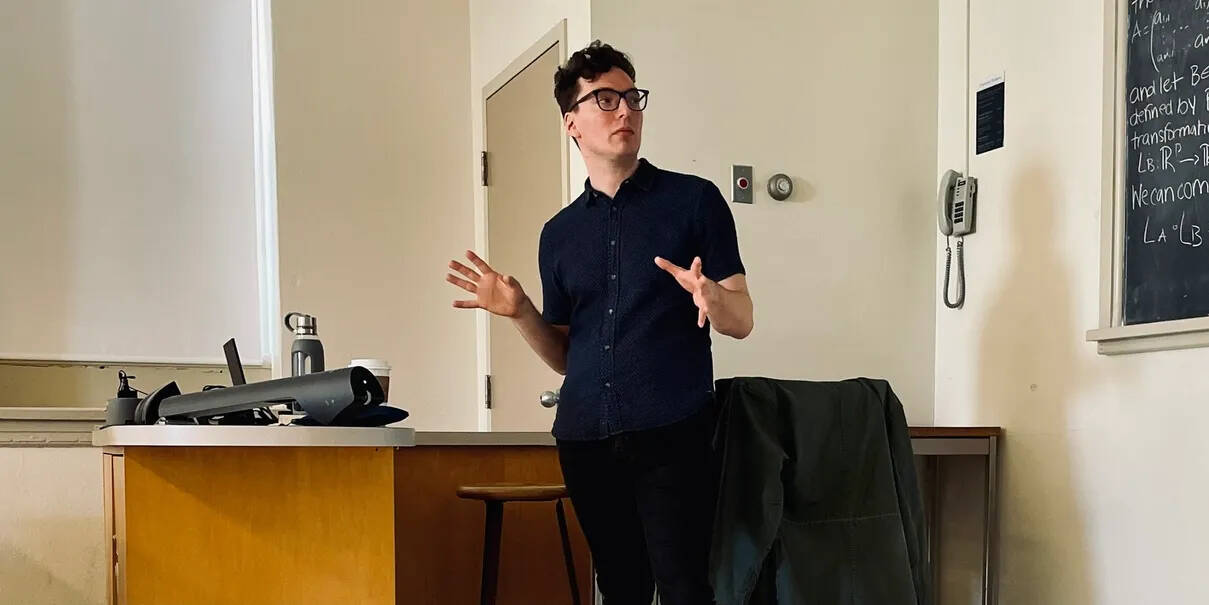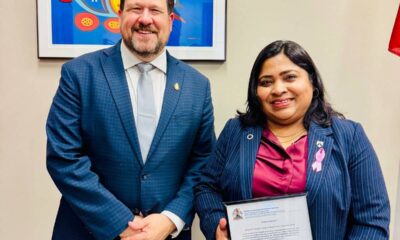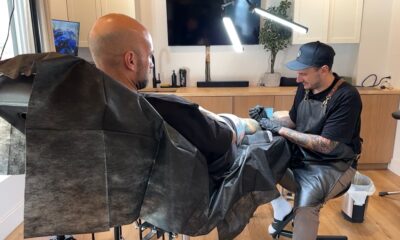Education
Adam Schipper Discusses the Realities of Academia and Philosophy

Choosing a career is a significant milestone in an individual’s life, often accompanied by a mix of excitement and anxiety. For many, this journey involves navigating the complexities of post-secondary education or entering the workforce. Adam Schipper, a graduate of École secondaire Neelin High School and a current part-time professor at Brandon University, offers insights into the world of academia and the philosophy of education.
Life as a Philosophy Professor
Dr. Adam Schipper, who holds a PhD in Philosophy, teaches both Philosophy and English Literature at Brandon University from his home in Montreal. His research focuses on the philosophy and politics surrounding housework and domestic labour. He describes his typical day as a blend of teaching, preparing for classes, and engaging with students.
“My routine includes breakfast, teaching via Teams, and prepping for the next day,” Schipper explains. “I also manage student emails and work on my research in the afternoons.” He emphasizes the importance of self-discipline in balancing these responsibilities, noting that, in academia, one often has to be their own motivator.
Schipper’s academic journey began at Queens University in Kingston, where he enrolled in 2018 after spending several years in various jobs outside academia. He reflects on this transition as a pivotal moment, stating, “I realized everything aligned for me when I returned to academia, and I truly loved my time at Queens.” His experience was further complicated by the onset of the Covid-19 pandemic, which disrupted his studies and the academic landscape as a whole.
The Challenges of Academia in a Changing Environment
The academic world is currently facing significant challenges, especially in light of funding cuts and increasing competition for jobs. Schipper acknowledges these hurdles, noting that while he possesses more teaching experience than some freshly minted PhD graduates, the landscape remains competitive. “Every year, there are fewer jobs and more applicants,” he states, highlighting the growing trend of trained academics seeking opportunities outside of traditional academic roles.
Schipper also addresses the impact of technological advancements, particularly artificial intelligence, on education. The rise of tools like ChatGPT has influenced how students approach their assignments. “We need to rethink the purpose of universities,” he asserts. “Education should be about personal growth, not merely acquiring a piece of paper for a job.”
In his teaching, Schipper strives to foster a connection with his students, even when conducting classes remotely. He aims to engage students in philosophical discussions, emphasizing the value of asking profound questions. “Philosophy helps us understand the world and challenges us to grow as individuals,” he notes.
Schipper’s insights serve as a reminder of the importance of nurturing a supportive academic environment, particularly in these challenging times. He believes that fostering a culture of care and mutual understanding is essential for transforming education and society at large. As he aptly puts it, “The only way forward is to transform the way we relate to each other.”
In an era where the value of humanities is often questioned, Schipper stands firm in his belief that philosophy enriches lives and promotes critical thinking. “Philosophy teaches us to ask the right questions,” he concludes, advocating for its inclusion in education at all levels.
The conversation with Adam Schipper sheds light on the realities of academia today, encapsulating the challenges and rewards of pursuing a career in philosophy and education. As the landscape evolves, the need for passionate educators and critical thinkers remains more important than ever.
-

 World4 months ago
World4 months agoScientists Unearth Ancient Antarctic Ice to Unlock Climate Secrets
-

 Politics4 days ago
Politics4 days agoSecwepemc First Nation Seeks Aboriginal Title Over Kamloops Area
-

 Entertainment4 months ago
Entertainment4 months agoTrump and McCormick to Announce $70 Billion Energy Investments
-

 Lifestyle4 months ago
Lifestyle4 months agoTransLink Launches Food Truck Program to Boost Revenue in Vancouver
-

 Science4 months ago
Science4 months agoFour Astronauts Return to Earth After International Space Station Mission
-

 Technology2 months ago
Technology2 months agoApple Notes Enhances Functionality with Markdown Support in macOS 26
-

 Top Stories4 weeks ago
Top Stories4 weeks agoUrgent Update: Fatal Crash on Highway 99 Claims Life of Pitt Meadows Man
-

 Sports4 months ago
Sports4 months agoSearch Underway for Missing Hunter Amid Hokkaido Bear Emergency
-

 Politics3 months ago
Politics3 months agoUkrainian Tennis Star Elina Svitolina Faces Death Threats Online
-

 Politics4 months ago
Politics4 months agoCarney Engages First Nations Leaders at Development Law Summit
-

 Technology4 months ago
Technology4 months agoFrosthaven Launches Early Access on July 31, 2025
-

 Top Stories2 weeks ago
Top Stories2 weeks agoFamily Remembers Beverley Rowbotham 25 Years After Murder





















